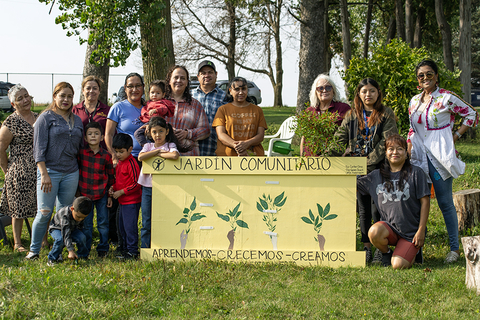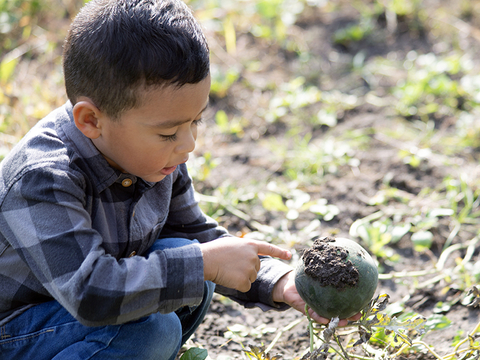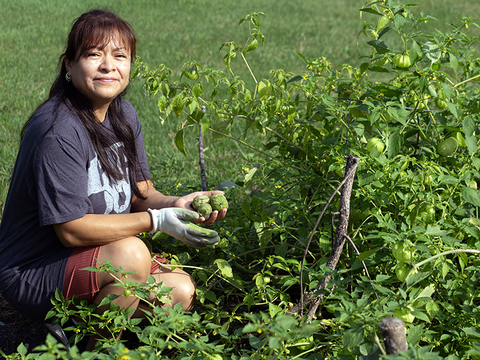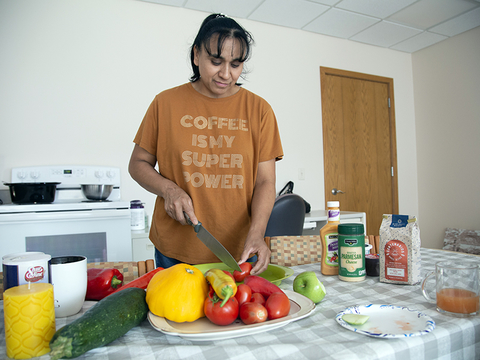In greater Minnesota, gardening has become a gateway to wellness, education and community for rural Latino immigrant families. In collaboration with the Minnesota State Horticultural Society, Extension’s Garden in a Box program launched in 2021 as a way to connect with people remotely during lockdown. That year, 20 families without access to land signed up to receive the soil, seeds, tools and knowledge needed to grow fresh fruits and vegetables at home.
Even with the extra challenges and limitations of COVID-19, the families quickly formed a close-knit community via the gardens. Three generations — kids, parents and grandparents — spent time outdoors helping each other water plants and weed beds, chatting in a text message group to swap tips and produce, and bonding over their shared experiences of adjusting to a new culture and country.
Through word-of-mouth recruitment from happy participants, the program has expanded every year. In 2023, Extension Garden in a Box worked with 135 families in Worthington, Medford, Winthrop, St. Cloud, Willmar and Long Prairie. There is even a waiting list of neighbors eager to join and get their hands dirty.
Putting down new roots
Because most of the Garden in a Box participants are Spanish-speaking and bilingual Latino immigrants, the success of the program hinged on choosing educators who share their culture and can build trust and rapport. Jose Lamas, Extension financial educator, was well-suited to work with this community.
“I grew up on a farm in Mexico so I had that background from my family, but I wasn’t an expert or anything like that,” says Lamas. “Most of the participants are from Mexico, Guatemala or Honduras and, like me, they might have gardened when they were young. But Minnesota is a totally different environment for people and plants.”
Lamas says, “Their connections are really strong because everybody helps out, shares solutions to issues, gets to know each other, talks about gardens, food, kids, school — whatever is on their minds.”
Gardening as a gateway to education
With gardening as an anchor activity and therapeutic outlet, Extension educators added on more learning opportunities. They partnered extensively with local organizations like community health clinics, 4-H, Department of Natural Resources, Master Gardeners and SNAP-Ed to provide relevant education on a variety of topics like mental and physical health, financial planning, parenting, nutrition and sustainable agriculture.
The success of the Garden in a Box program isn’t measured in pounds of produce, but rather the positive impact it has made on the lives of participants. They consistently state that the gardens have become a place of refuge from the stress of everyday life and a source of joy, nourishment and healing.
“When the first families signed up, it was for a three-year program. But now we are entering our fourth growing season and they all want to keep coming,” says Extension family resiliency educator Silvia Alvarez de Davila. “I’m happy that they are as invested in us as we are in them. It feels good to know they really want us here.”
Permission is granted to news media to republish our news articles with credit to University of Minnesota Extension. Images also may be republished; please check for specific photographer credits or limited use restrictions in the photo title.





